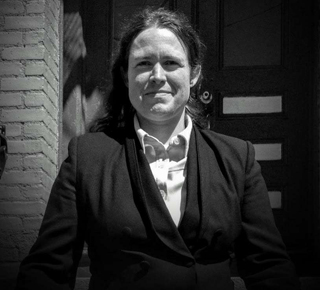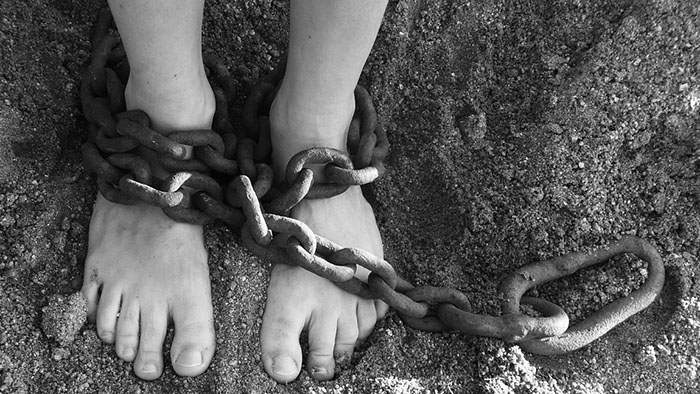April is child abuse prevention and awareness month, and normally it’s business as usual for someone whose job revolves around the prevention and awareness of child abuse. January is Human Trafficking Awareness month, when celebrities with cool hashtags and Instagram accounts raise awareness about human trafficking. Even though I’m not a celebrity last January I was invited to write an op-ed and a local magazine gave me carte blanche to write about human trafficking each month, indefinitely. Seemingly, we can’t possibly draw enough attention to human trafficking, but just in case that topic was becoming blase, I’m seeing the term “pedophile ring” more and more on social media and in my daily google alerts about child sexual abuse.
For starters, some definitions:
- Human trafficking means using force, fraud, coercion or minority in exchange for labor or sex.
- Child sex trafficking is when one person receives money, goods or services in exchange for sexual contact with a minor of any age.
- A pedophile ring, if the term is being correctly used, would be an organized system of accepting money, goods or services in exchange for sexual contact with a prepubescent child.
Pimps who traffic teenagers generally have the teenagers live with them and form a strong emotional bond with them. That’s how they have them do miserable work, take their money and return to them, night after night. Kidnapping is rarely a point of entry. Victims usually enter “the life” because they run away, are kicked out of their home or foster home, or are “seduced” away from home. Prepubescent children don’t really run away, get kicked out or lend themselves to being “seduced,” making them harder to traffick than teenagers. This is why prepubescent children who are trafficked are almost always trafficked by a parent or foster parent.
Most people who sexually abuse children by forming a significant relationship with the child and slowly “grooming” them to desensitize them to touch and to keeping the abuse secret.
So why is the topic of sexually abusing children for cash so fascinating?
- It’s repulsive. The idea of renting a child for sex on demand adds the elements of wealth and entitlement to something already universally repulsive.
- It’s makes for a safer world view. If we embrace the facts about child sexual abuse we realize every child in our lives is at risk. Researchers keep concluding that approximately 10 percent of men and 4 percent of women have a clinically significant sexual attraction to children and approximately 20 million IP addresses involved in the peer-to-peer file sharing of child pornography have been identified. That means all of us know someone who has, will, or wants to sexually abuse a child. But few of us know anyone keeping confined children in their basement and renting them out as a pedophile ring.
- They have recycled the “stranger danger” of the 1980’s. Whether they focus on protecting your kids form the dangers of social media or the dangers of shopping at Ikea, these undocumented, clickbait stories are now modern urban legends that reinforce the beliefs that strangers are the only people we need to worry about.
When people ask me what they can do to protect their children from traffickers, I want to say “don’t sexually abuse them. Don’t let anyone else sexually abuse them. And keep them out of foster care.” I don’t actually say that, because very few parents intend for those things to happen to their children. But despite the belief that traffickers lurk behind every internet connection and Ikea couch, but based on the ACE study and the high estimate offered by experts in 2015, trafficking only represents 2.6 percent of child sexual abuse, and the things that make children vulnerable to traffickers are abuse and foster care.
And therein lies the real solution to the problem. Ultimately, ending human trafficking will require a sophisticated look at preventing abuse. Right now, the anti-trafficking movement will generally support any legislation that has the words “human trafficking” in it but ignores major child abuse prevention issues like Maternal Home Visiting. The Catholic Church has taken this to its illogical extreme, by strongly opposing human trafficking and simultaneously spending millions of dollars fighting to keep sex offenders on the street, sexually abusing kids and making them vulnerable to being trafficked.
Fixing major social problems and injustices isn’t easy. But it isn’t possible until we move past the salacious and sensational details. It isn’t possible if we distort truths to quiet our fears and inadequacies. But if we work together, it is possible.
Need help? Visit RAINN’s National Sexual Assault Online Hotline or the National Sexual Violence Resource Center’s website.
Do you know your score?
Discover your ACE score and unlock a new understanding of your life. Take the test and gain insights into how your early experiences shape your well-being. Don't let your past define you – empower yourself with knowledge.

Melanie Blow
Executive Director, Stop Abuse Campaign
A survivor of incest, psychological abuse and a host of other childhood trauma, Melanie now uses her talents to prevent Adverse Childhood Experiences. Melanie has over a decade of legislative advocacy regarding children’s issues, and she has been published in newspapers, magazines and blogs all across the country.
Melanie has an ACE score of 6.
